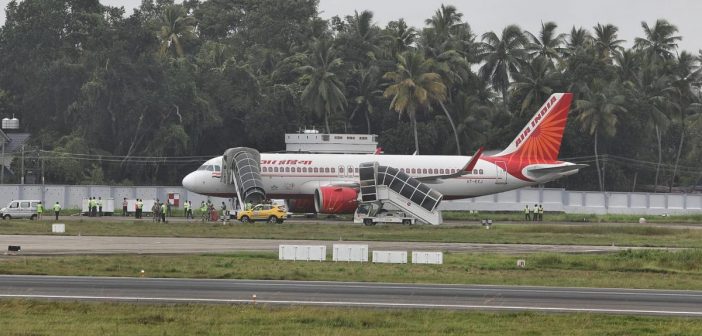A recent surge in bomb hoax calls targeting flights in India has highlighted significant vulnerabilities in the nation’s aviation security framework. Between October 13 and October 27, over 70 bomb threats were issued across domestic and international flights, with as many as 30 hoax calls on a single day, October 20. These threats have forced major flight diversions to countries including Canada and Germany, caused mass flight delays, and necessitated fighter jet escorts in regions such as Britain and Singapore, sparking alarm among passengers and placing considerable strain on airline operations.
Scope and Impact of the Threats
The hoax calls primarily targeted major Indian airlines such as Air India, Vistara, and IndiGo, causing significant operational and financial setbacks. Each incident requires immediate security protocol activation, including flight diversions, airport ground checks, and passenger evacuations. For instance, some flights had to land for unplanned security checks and led to hours of delays. This scenario has raised concerns not only for the economic impact on airlines but also for the wellbeing of passengers who face increased anxiety about the safety of their journeys. Additionally, frequent bomb threats may reduce passenger confidence, affecting India’s aviation sector reputation internationally.
Security Response and Challenges
Despite increased monitoring by authorities, such as the Directorate General of Civil Aviation (DGCA) and Bureau of Civil Aviation Security (BCAS), the rapid succession of calls has made containment challenging. Authorities have emphasized that “strict action” will be taken, although tracking down anonymous calls—especially those routed through encrypted messaging and VoIP services—remains a critical issue. Efforts include collaborating with intelligence agencies to trace hoax callers and utilizing cybersecurity tools, but limitations in technology and legal frameworks slow down rapid response.
Proposed Measures to Strengthen Aviation Security
Experts recommend several immediate actions to counteract this hoax threat phenomenon and bolster public confidence:
- Enhanced Surveillance and AI Integration: Employ AI-driven monitoring to detect suspicious online chatter and intercept hoax threats on social media or encrypted messaging platforms before they reach critical levels.
- Strengthened Protocols for Crisis Management: Airlines and authorities must establish robust and clear protocols, minimizing operational delays and ensuring a streamlined response for genuine versus hoax threats.
- Severe Legal Consequences for Hoax Callers: Implement stricter penalties and fast-track judicial processes for perpetrators, deterring future calls through real and visible consequences. Enhanced cybersecurity legislation could assist law enforcement in tracking down international or anonymous threats.
- International Security Collaboration: Many threats are cross-border, thus necessitating cooperative protocols with global agencies for effective threat assessment and quick data-sharing, particularly on flights bound for or leaving Indian airspace.
- Public Awareness and Reporting Initiatives: Regular public communication on safety measures can reassure passengers and increase vigilance against threats without causing panic.
Conclusion
The recent wave of bomb hoax calls is a wake-up call for India’s aviation and security frameworks. As hoaxes persist, the operational and reputational costs for airlines continue to mount, underscoring the need for both immediate and long-term solutions. Enhanced cybersecurity, international collaboration, and reinforced crisis management are essential steps to safeguard passengers and reduce vulnerabilities in the aviation industry. With the right initiatives, India can better protect its airspace from disruptive threats, ensuring that flights remain secure and reliable for travelers across the globe.





